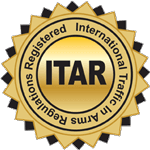Rotary transfer machines are highly productive CNC machines that can produce mass quantities of complex machined components. Each spindle has a tool attached that functions to chamfer, deburr, drill, mark, mill, ream, recess, tap, thread, turn, and otherwise shape workpieces into parts during production. This allows for the continuous, automated loading and unloading of multiple components into and out of each of the rotary transfer machine’s stations. Additionally, each station in a rotary transfer machine offers complete customizability to provide a single solution for a fabrication process.
At Staub Precision Machine, our shop uses rotary transfer equipment to manufacture large parts. This automated technology can manufacture high-volume, blanket, or repeat orders more efficiently than ever. Below, we outline some of the many advantages of rotary transfer machines and how their capabilities can improve production efficiency in precision machining.
12 Advantages of Rotary Transfer Machines
With multiple stations, rotary transfer machines need only a single setup, offering simultaneous machining operations. This increases productivity exponentially, as blanks are fed from the periphery of the indexing table, advancing from station to station until the workpieces are formed into completed parts.
Advantages of rotary transfer machines include:
- It can handle heavier components and those with complex geometries with only manual loading and unloading of the machine, though this, too, can be largely automated.
- Reduces the need for machine operators since rotary transfer machines require only one operator.
- Largely eliminates the dangers of operator fatigue as much of the operations are automated.
- Increases output considerably, as one machine can replace several other CNC machines.
- Can easily adjust output to ensure production speed complements other areas along the production line.
- Saves floor space in a facility by eliminating the need to group multiple machines closely.
- Simplifies production control as only one machine requires programming instead of several, reducing the number of setups needed.
- Offers greater flexibility when wanting to modify component design.
- It can be altered – dissembled and rebuilt – to fabricate other types of components if the ones it makes become obsolete.
- Easier to align and automate workstations.
- It can be used to create an economy of scale since one rotary transfer machine can do the work of several CNC machines.
- Offers better overall accuracy due to integration of work with fixtures.
The nature of rotary transfer machines allows manufacturers to customize manufacturing for just about any industry. Additionally, it offers quick turnarounds for both mid-level and high-volume production.
Ready to automate your next job?
VIEW OUR EQUIPMENTCommon Applications
Rotary transfer machines are used across several industries but are particularly effective in the automotive, electronics, and medical device industries, where high-volume orders are standard and require extreme precision. While applications depend upon several factors, including the extent of the machining work needed, the production quantities involved, and the size of the components requiring fabrication, some common examples include the following:
- Electric vehicle (EV) components.
- Fittings for hydraulic and pneumatic equipment.
- Hydraulic and pneumatic equipment.
- Medical instrument connectors and other medical devices.
- Motor vehicle bodies, chassis, engine, fuel supply, gearbox, and safety equipment.
Working with Staub Precision Machine
Staub Precision Machine specializes in producing high-volume, recurrent precision machined parts. Our state-of-the-art automated equipment has allowed us to advance our processes and exceed customer expectations. With the modularity of rotary transfer machines, Staub offers greater production flexibility and versatility while eliminating secondary machining operations.
To learn more about our automated machining capabilities, speak with our team, or get started on a project, please contact us at Staub Precision Machine today.



